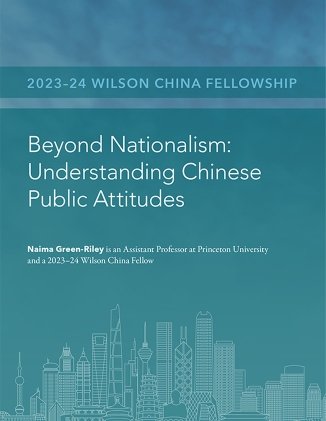Beyond Nationalism: Understanding Chinese Public Attitudes


This research project uses survey methods to identify a Chinese version of individual-level authoritarianism, a psychological identity trait emphasizing traditional values and political obedience, and its effects on Chinese public foreign policy preferences. Despite growing attention to authoritarianism as a psychological predisposition affecting political preferences in the West, little research has been done to determine the effects of this trait in East Asian societies. This paper shows that authoritarianism is a strong predictor of attitudes toward China’s role in the world and preferences for personal engagement with foreigners from the West.
About the Author


Kissinger Institute on China and the United States
The Kissinger Institute works to ensure that China policy serves American long-term interests and is founded in understanding of historical and cultural factors in bilateral relations and in accurate assessment of the aspirations of China’s government and people. Read more













